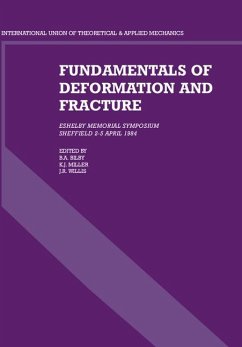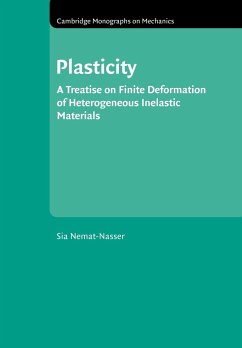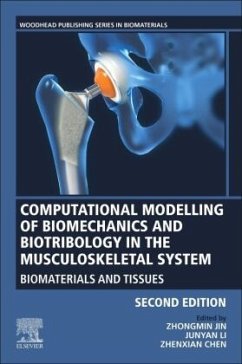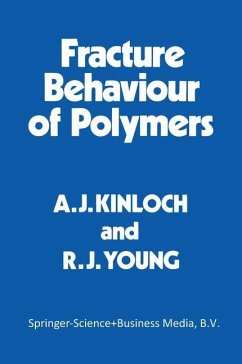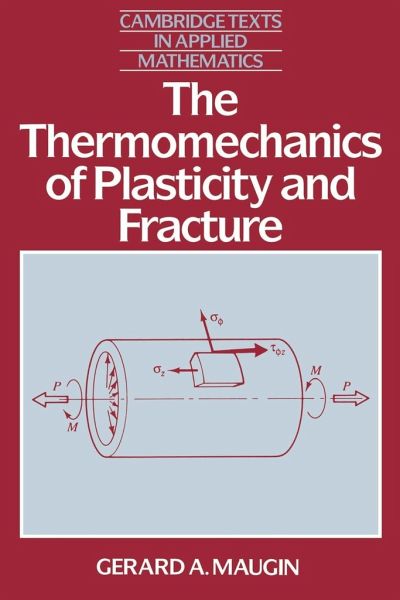
The Thermomechanics of Plasticity and Fracture
Versandkostenfrei!
Versandfertig in 1-2 Wochen
83,99 €
inkl. MwSt.

PAYBACK Punkte
42 °P sammeln!
This book concentrates upon the mathematical theory of plasticity and fracture as opposed to the physical theory of these fields, and is presented in the thermomechanical framework. It follows the macroscopic, phenomenological approach which proposes equations abstracted from generally accepted experimental facts, studies the adequacy of the consequences drawn from these equations to those facts and then provides useful tools for designers and engineers. The material is drawn from the author's graduate course in Europe and the United States and may be used to form the basis for similar graduat...
This book concentrates upon the mathematical theory of plasticity and fracture as opposed to the physical theory of these fields, and is presented in the thermomechanical framework. It follows the macroscopic, phenomenological approach which proposes equations abstracted from generally accepted experimental facts, studies the adequacy of the consequences drawn from these equations to those facts and then provides useful tools for designers and engineers. The material is drawn from the author's graduate course in Europe and the United States and may be used to form the basis for similar graduate courses on plasticity and fracture. Many worked examples are presented and each chapter concludes with problems for students. The book will thus undoubtedly establish itself as a core text for both students and researchers.
Table of contents:
Introduction to plasticity, experimental facts; Thermomechanics of elastoplastic continuous media; Small strain elastoplasticity; Problems in perfect elastoplasticity; Elastoplasticity with strain hardening; Notions of limit analysis; Crack propagation and fracture mechanics; Elastoplasticity with finite strains; Homogenization of elastoplastic composites; Coupling between plasticity and damage; Numerical solution of plasticity problems; Experimental study using infrared thermography; Appendices; References; Index.
This book follows the macroscopic, phenomenological approach which proposes equations abstracted from generally accepted experimental facts, studies the adequacy of the consequences drawn from these equations to those facts and then provides useful tools for designers and engineers.
This book concentrates upon the mathematical theory of plasticity and fracture as opposed to the physical theory of these fields, and is presented in the thermomechanical framework.
Table of contents:
Introduction to plasticity, experimental facts; Thermomechanics of elastoplastic continuous media; Small strain elastoplasticity; Problems in perfect elastoplasticity; Elastoplasticity with strain hardening; Notions of limit analysis; Crack propagation and fracture mechanics; Elastoplasticity with finite strains; Homogenization of elastoplastic composites; Coupling between plasticity and damage; Numerical solution of plasticity problems; Experimental study using infrared thermography; Appendices; References; Index.
This book follows the macroscopic, phenomenological approach which proposes equations abstracted from generally accepted experimental facts, studies the adequacy of the consequences drawn from these equations to those facts and then provides useful tools for designers and engineers.
This book concentrates upon the mathematical theory of plasticity and fracture as opposed to the physical theory of these fields, and is presented in the thermomechanical framework.








